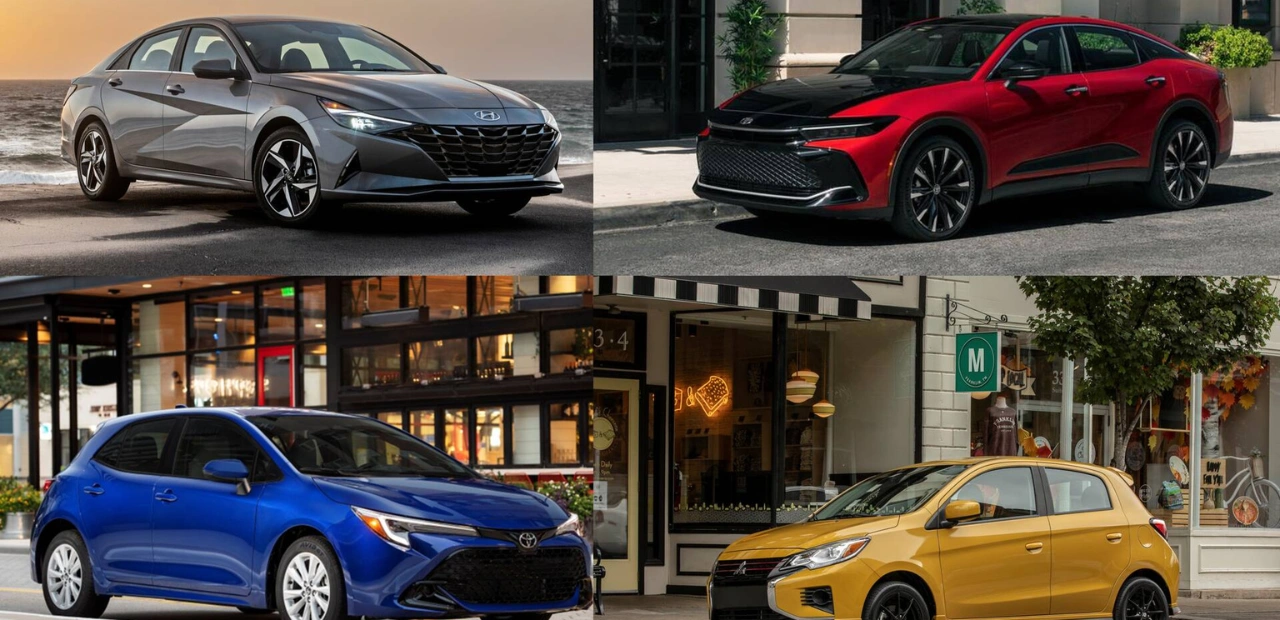Environmental Impact of Efficient Cars

The Importance of Fuel Efficiency: Exploring the Environmental Benefits
Improving fuel efficiency in vehicles is crucial when it comes to protecting the environment. By reducing the amount of fuel consumed, efficient cars help mitigate the release of harmful greenhouse gases, such as carbon dioxide, into our atmosphere. These gases are major contributors to climate change and global warming, which have severe consequences for our planet. Fuel efficiency directly translates to lowered emissions, thereby minimizing the negative impact on our environment and creating a more sustainable future.
In addition to combating climate change, the environmental benefits of fuel-efficient cars extend to decreasing air pollution levels. Urban areas, in particular, struggle with high concentrations of pollutants that can be detrimental to both human health and natural ecosystems. Efficient cars emit fewer pollutants, such as nitrogen oxides and particulate matter, which are responsible for smog formation and respiratory issues. By adopting and promoting fuel-efficient technologies, we can significantly improve air quality, creating cleaner and healthier cities for everyone to enjoy.
Reducing Carbon Emissions: How Efficient Cars Help Combat Climate Change
Automobiles are major contributors to greenhouse gas emissions, specifically carbon dioxide. As the primary greenhouse gas responsible for climate change, reducing carbon emissions is crucial in our efforts to combat the global climate crisis. This is where the importance of fuel-efficient cars comes into play. Efficient cars have the ability to significantly reduce carbon emissions compared to their less efficient counterparts. By improving fuel economy and reducing the amount of fuel burned, these vehicles release fewer carbon emissions into the atmosphere. This not only helps to mitigate climate change but also contributes to lowering our carbon footprint and creating a more sustainable future.
One of the key ways in which efficient cars combat climate change is through their ability to optimize engine performance. By utilizing advanced technologies and engineering, such as turbocharging, direct fuel injection, and hybrid systems, these vehicles are designed to maximize fuel efficiency. This means that less fuel is required to power the car, resulting in reduced carbon emissions. Additionally, efficient cars often incorporate lightweight materials in their construction, which further enhances fuel efficiency. By reducing the weight of the vehicle, less power is needed to propel it, leading to lower carbon emissions. This combination of improved engine performance and reduced weight results in a significant reduction in carbon emissions, making efficient cars indispensable in our fight against climate change.
Decreasing Air Pollution: The Positive Impact of Efficient Cars on Urban Areas
The positive impact of efficient cars on urban areas cannot be understated when it comes to decreasing air pollution. With the increasing number of vehicles present in cities, the levels of air pollution have reached alarming levels. However, with the advent of fuel-efficient cars, there is a glimmer of hope for cleaner and healthier urban environments.
Efficient cars are designed to minimize harmful emissions and maximize fuel economy. By using advanced technologies and alternative fuels, these vehicles release considerably fewer pollutants into the atmosphere compared to traditional cars. This reduction in emissions directly contributes to a decrease in air pollution in urban areas. As a result, residents can breathe cleaner air, which has significant benefits for overall public health. Furthermore, by decreasing air pollution, efficient cars also help to mitigate the negative effects of smog and other pollutants that contribute to respiratory problems and other health issues in urban populations.
Conserving Natural Resources: How Efficient Cars Help Preserve our Planet
Efficient cars play a significant role in conserving natural resources and preserving our planet for future generations. These vehicles are designed to use fuel efficiently, resulting in reduced consumption of natural resources such as oil and gas. By utilizing advanced technologies and innovations, efficient cars maximize the energy produced from these resources, minimizing waste and ensuring the optimal utilization of finite resources.
Moreover, the use of efficient cars helps reduce the demand for fossil fuels, which are the primary contributors to environmental pollution and degradation. The extraction and processing of fossil fuels have severe impacts on ecosystems, leading to habitat destruction, air and water pollution, and climate change. By decreasing our reliance on these non-renewable resources, efficient cars contribute to the conservation of natural habitats and the preservation of biodiversity. In this way, these vehicles act as a powerful tool in mitigating the negative effects of human activities on our planet's delicate balance.
Minimizing Oil Dependency: Exploring the Environmental Advantages of Efficient Cars
Minimizing Oil Dependency: Exploring the Environmental Advantages of Efficient Cars
The development and widespread use of fuel-efficient cars have significant environmental advantages, particularly in terms of minimizing oil dependency. As the demand for oil continues to rise, it becomes crucial to explore viable alternatives that can reduce our reliance on this finite resource. One notable advantage of efficient cars is their ability to consume less fuel per mile traveled, which directly translates to lower oil consumption. By utilizing advanced technologies and improving engine efficiency, these vehicles not only reduce the overall demand for oil but also contribute to preserving our planet's limited resources.
In addition to minimizing oil dependency, fuel-efficient cars also help combat environmental pollution associated with oil extraction and refining. The extraction process often leads to destructive impacts on ecosystems, including habitat destruction, water pollution, and air emissions. Moreover, the refining of crude oil releases significant amounts of greenhouse gases and harmful pollutants, contributing to climate change and air pollution. By reducing the amount of oil consumed, efficient cars indirectly mitigate these negative environmental impacts, promoting cleaner air quality and a healthier ecosystem. This environmental advantage goes beyond the immediate reduction in carbon emissions and plays a crucial role in creating a sustainable future for generations to come.
Enhancing Energy Security: How Efficient Cars Contribute to a Sustainable Future
With the increasing concern over energy security and the finite nature of fossil fuels, the need for efficient cars has become more imperative than ever. By embracing fuel efficiency, we can significantly reduce our dependence on fossil fuels and enhance our energy security. Efficient cars consume less fuel, allowing us to stretch our limited resources further. This not only reduces our reliance on foreign oil but also helps to minimize the geopolitical tensions often associated with oil-rich regions. By prioritizing sustainability and reducing our oil dependency, efficient cars contribute to a more secure and stable energy future.
Moreover, efficient cars play a crucial role in diversifying our energy portfolio. As we transition towards renewable energy sources, fuel-efficient vehicles can seamlessly integrate with environmentally-friendly technologies such as electric or hybrid powertrains. The combination of efficient cars and renewable energy promotes a sustainable future by reducing greenhouse gas emissions and mitigating climate change. By investing in the development and adoption of efficient cars, we can unlock the potential of alternative energy sources, ensuring a diversified and resilient energy sector for generations to come. Through their contribution to energy security and their alignment with sustainable technologies, efficient cars pave the way towards a more sustainable future.
